
Blending acoustic and electronic elements with an expansive lineup of musicians, the final album from Un Drame Musical Instantané, recorded across multiple French studios, brings together Jean-Jacques Birgé, Bernard Vitet, Steve Arguelles, Benoît Delbecq, Yves Robert, DJ Nem, and guest vocalists like Archie Shepp and Otomo Yoshihide in a genre-defying mix of jazz, contemporary, improvised, and experimental approaches.
In Stock
Quantity in Basket: None
Log In to use our Wish List
Shipping Weight: 5.00 units
EU & UK Customers:
Discogs.com can handle your VAT payments
So please order through Discogs
Sample The Album:
Steve Arguelles-drums
Benoit Delbecq-sampler, synthesizer, Talkbox
Jean-Jacques Birge-strings, theremin, synthesizer, editor
Bernard Vitet-trumpet, brass, percussion, voice
Agnes Desnos-computer
Etienne Auger-Groovebox
Francis Gorge-guitar, percussion
Yves Robert-trombone
DJ Nem-turntables
Antoine Schmitt-programmer
Alain Spira-voice
Archie Shepp-voice
Farhad S.-voice
Francisco Cruz-voice
Genevieve Birge-voice
Jean-Francois Pauvros-voice
Lucinda Vieira Monteiro-voice
Marc Borgers-voice
Otomo Yoshihide-voice
Raul Barboza-voice
Steve Arguelles-voice, effects
Talia Mouracade-voice
Topper-voice
Youssef El Idrissi-voice
Click an artist name above to see in-stock items for that artist.
UPC: 794881446124
Label: GRRR
Catalog ID: GRRR 2023
Squidco Product Code: 35588
Format: CD
Condition: New
Released: 1998
Country: France
Packaging: Jewel Case
Recorded and mixed at Studio GRRR, Boulogne-Billancourt, France, as well as Clam'Art Studio, and Xtralab.
"Last published album (1998) by Un Drame Musical Instantane with old and new pieces featuring a lot of guests around the concept of vinyle. Jean-Jacques Birge and Bernard Vitet invited Benoit Delbecq, Steve Arguelles, Philippe Deschepper, DJ Nem, Yves Robert, Luigee Trademarq, Agnes Desnos, Etienne Auger who is also the graphic designer, plus Francis Gorge who had left the band in 1992."-GRRR"
Released in 1998, Machiavel stands as the final album by the avant-garde collective Un Drame Musical Instantané, featuring core members Jean-Jacques Birgé and Bernard Vitet collaborating with a diverse ensemble of artists, including Steve Arguelles on drums, Benoît Delbecq handling sampler, synthesizer, and Talkbox, and contributions from voices like Archie Shepp and Otomo Yoshihide. Recorded and mixed across multiple studios in France — Studio GRRR in Boulogne-Billancourt, Clam'Art Studio, and Xtralab — the album showcases an inventive fusion of acoustic and electronic elements, blending strings, theremin, brass, percussion, and computer-generated sounds. The project reflects the group's unclassifiable and inventive approach to music, drifting from jazz to electronic and contemporary styles, culminating in a critical and perceptive vision of the planet through a symphony of noises and music.
Artist Biographies
• Show Bio for Benoit Delbecq "Benoît Delbecq was born in St Germain en Laye (F), June 6, 1966. He lives in Bondy, near Paris. A dreamer and an adventurer in music, pianist/composer/producer Benoît Delbecq has been one of the activists of Hask (1992-2004) and Astrolab (1994-1999), two Paris-based cutting-edge jazz/improv collectives that have contributed to significantly revitalize the french creative music scene around the club Instants Chavirés in Montreuil/Paris. His music and projects include works for theater, dance, litterature, visual arts and motion pictures, that are being regularly invited by major festivals worldwide. He has released about 35 records as a leader or co-leader among a discography of more than a hundred discs. Anchored in both jazz history as well as in aesthetical stakes of today's new musics, Delbecq's works are world-widely acclaimed since the early nineties. He is a renown specialist for a personal and polymetric approach of "prepared piano", and has also an regular activity in the electronic department. His works are experimenting a blend of improvisation and composition in which he reveals a rich pallet of sounds, enlightened by stratas of multiple momentums, articulations and seemingly floating harmonies. Inspired by alternative urban musical experiments and electronic music adventures, he also improvises a personal approach of drum'n bass and ambient. Benoît was awarded 'Prix jeunes affiches de la SACEM' in 1995 with group KARTET, prix de la Villa Médicis Hors-les-murs 2001 for his first solo piano recording " Nu-Turn " (Songlines, 2003), was awarded with the fellowship of Civitella Fundation (New York, 2009), was awarded in 2010 a double Grand Prix International du Disque (Académie Charles Cros, the French Grammy Awards), and his trio CD "The Sixth Jump " (Songlines) was listed in the New York Times top ten jazz/pop records of 2010. His works for the Fred Hersch/Benoît Delbecq FUN HOUSE double trio (premiered and recorded in May 2012, to be released FEB 2013) have recently received the French Ministère de la Culture " Commande d'Etat " funding. Recently he was commissioned by JAZZTOPAD Festival in Wroclaw (Poland) for a new piece for the Lutoslawski String Quartet and two improvisers (Miles Perkin on bass and himself on piano)." ^ Hide Bio for Benoit Delbecq • Show Bio for Jean-Jacques Birge "Music composer, film director, multimedia author, sound designer, writer, Jean-Jacques Birgé considers music essentially in the audio-visual relationship, or at least in its confrontation with other forms of artistic expression. Founder of Disques GRRR, he was one of the first synthesists in France in 1973, and with Un Drame Musical Instantané the precursor of the return to the cine-concert in 1976. If his first electronic work dates from 1965, he composes as well for symphonic orchestras that he improvises freely with musicians from the most diverse backgrounds. For his "radiophonic" creations and his multimedia shows (live zapping on the big screen, fireworks, choreographies...), improvisation and preliminary writing merge, the original electroacoustic treatments are integrated with traditional instruments to create evocative musical fictions that he calls musique à propos. From 1995, he became one of the most popular sound designers in multimedia and a specialist in interactive musical composition, seeking to deepen the effects of meaning and develop an ever-wider range of emotions. As part of his work on major exhibitions, he recently worked at the Louvre Museum, the Cité des Sciences et de l'Industrie, the Grand Palais, the Panthéon, the Palais de Tokyo, the ZKM... Alongside around fifty vinyls and CDs, his website drame.org offers 105 unreleased albums (191 hours!) for free listening and downloading. He has been running a daily, activist and supportive blog for 20 years and gives conferences on the relationship between sound and image." ^ Hide Bio for Jean-Jacques Birge • Show Bio for Bernard Vitet "Bernard Vitet (26 May 1934 - 3 July 2013) was a French trumpeter, multi-instrumentist and composer, co-founder of the first free jazz band in France (1964) together with François Tusques, Michel Portal Unit (1972) and Un Drame Musical Instantané with Jean-Jacques Birgé and Francis Gorgé in 1976. Born in Paris, France, Vitet was involved in the early fusion of jazz and contemporary music with Bernard Parmegiani and Jean-Louis Chautemps. In the 1960s, he accompanied singers such as Serge Gainsbourg, Barbara, Yves Montand, Claude François, Brigitte Bardot, Marianne Faithfull, Colette Magny, and Brigitte Fontaine. He played with jazz musicians such as Lester Young, Archie Shepp, Anthony Braxton, Don Cherry, Chet Baker, the Art Ensemble of Chicago, Steve Lacy, Gato Barbieri, Jean-Luc Ponty, and Martial Solal. In his early years, he performed with Django Reinhardt, Gus Viseur, Eric Dolphy, and Albert Ayler. Under his own name he recorded Surprise-partie avec Bernard Vitet (on trombone!), La Guêpe on texts by Francis Ponge, Mehr Licht!, and about 200 other records with the aforementioned, plus Jean-Claude Fohrenbach, Georges Arvanitas, Sunny Murray, Michel Pascal, Alan Silva, Alexander von Schlippenbach, Hubert Rostaing, Alix Combelle, Ivan Jullien, Christian Chevalier, Jef Gilson, Jack Diéval, Jac Berrocal, Hélène Sage and 17 albums with Un drame musical instantané. In 1995, he co-signs the songs of Carton with Birgé, with whom he collaborates on music for films, exhibitions, and CD-Roms. Vitet invented instruments such as a reed trumpet, a multiphonic French horn, a variable tension double-bass, the dragoon which is a giant balafon with frying pans and flower pots keyboard, a clever system of modal clocks, and astonishing musical objects for Georges Aperghis, Tamia, and Françoise Achard. Besides trumpet, he sang and played flugelhorn, piano and violin. He composed theatre music for Jean-Marie Serrault, and for the films (Les coeurs verts by Édouard Luntz, L'ombre de la pomme by Robert Lapoujade with Jean-Louis Chautemps, Bof by Claude Faraldo in collaboration with Jean Guérin, and La femme-bourreau by Jean-Denis Bonan. From 1976 to 2008, he devoted himself primarily to Un Drame Musical Instantané with Jean-Jacques Birgé, improvising and composing hundreds of pieces together, experimental essays as well as symphonic pieces, songs as well as music for films. Un D.M.I., as a trio or with their 15-piece orchestra, presented multimedia shows involving cinema, video, literature, dance and new technologies." ^ Hide Bio for Bernard Vitet • Show Bio for Francis Gorge Francis Gorgé, aka Frank Bugs, is a French composer and virtuoso guitarist, born 1953 in Paris. He is known for his work with Jean-Jacques Birgé on the GRRR and Souffle Continu labels. ^ Hide Bio for Francis Gorge • Show Bio for Yves Robert "Born in 1958, Yves Robert studied flute and trombone at the Vichy Conservatory for 9 years. He feels very quickly attracted by jazz, his energy, and the feeling of spirited freedom that he provides. To celebrate and dream of being, he decides to be virtuoso and works with multiple sound techniques (multiphonies, slaps, continuous breath, aspiration,) History to be unmatched adaptable and appreciated. After, comes the time of the conquests: In 1981, he joined the ARFI (Association for the Research of an Imaginary Folklore) in Lyon, and the GRIM in Marseille in 1983 and organizes musical meetings, concerts, festivals, educational workshops. Talented improviser, he became a reference trombonist of contemporary jazz and played on the biggest stages of Europe with among others Bernard Lubat, Chris Mc Gregor, National Jazz Orchestra 1986, and 1997/2000, Daniel Humair, Gérard Marais, Derek Bailey, Michel Portal, Marc Ducret, Joelle Leandre, Louis Sclavis, Francois Corneloup, Jacques Pellen, tour with "Prohibition", with "Bumcello" .... So it's not bad and it's going well but it's not just jazz in his world, and his obvious scenic ease brings him to collaborate on different musical shows. "La Baraque Rouge" Gérard Marais' jazz opera, "Futurities" Steve Lacy's music and dance, "Silences" Joëlle Léandre's musical theater, "L'Opéra des Pékins" by Antoine Hervé, "Double number" Duo dance music Yves Robert / Georges Appaix, "Peppermint Soda" Spectacle dance music with Anna Rodriguez, Alvaro Morell, "Oder die Glücklose Landung" by Heiner Goebbels, "The the sound" musical show young audience with J.Marie Maddeddu, "The most clear of my time "multimedia theater ... He also composes several documentary film and dance shows, including the soundtrack of "A Specialist" (1999 Real: Eyal Sivan, Rony Brauman) on the trial of Adolf Eichmann in Jerusalem." ^ Hide Bio for Yves Robert • Show Bio for Antoine Schmitt "Antoine Schmitt (born 1961 in Strasbourg) is a French visual artist and programming engineer who revolves in the fields of digital art and digital design, especially in the field of the connected objects. Antoine Schmitt taught himself programming at the age of sixteen on the family computer and was fascinated by its metaphysical and experimental aspects. He obtained his civil engineering degree from Télécom Paris in 1984. He was first a programmer and project manager in the service company Act Informatique between 1985 and 1991, and specialized in the field of artificial intelligence and human-machine interactions. He developed tools, carried out missions and conducted research in the fields of expert systems, artificial neural networks, geographic information systems, and computer vision. He collaborated technically with Jacques Serrano on his work Cigale (1989). From 1991 to 1994, he worked as a programmer for the company NeXT founded by Steve Jobs, specializing in human-machine interfaces for development software (Project Builder) and communication systems (Mail, distributed persistent messaging systems). He participated in the design and programming of the OPENSTEP environment and created the NSNotificationQueue class, which is still an integral part of Mac OS X to this day. In 1997, he assisted filmmaker Chris Marker in testing his CD-ROM Immemory. Between 1996 and 2003, he developed and distributed specialized software bricks (plugins), in particular asFFT Xtra for Adobe Director. Between 2001 and 2006, he was a behavioral designer for domestic robotics products for the company violet (Dal, Dal:Dal, Nabaztag). Since 1995 he has been an independent programmer in the fields of multimedia, human-machine interactions and connected objects, and works with many specialized companies (Hyptique, Virtools, BBC, Incandescence, violet, enero, Kingfisher, Intuis, etc...). In 1995, Antoine Schmitt began an artistic activity using "programming as the heart of digital aesthetics". He articulates his work around the notion of artificial being which allows him to approach the human being and the nature of reality in a new way. A pioneer of generative art, his work is internationally recognized by numerous awards, residencies, exhibitions and concerts. Using programming as an artistic material, he collaborates with many artists from other fields of art (Franck Vigroux, Atau Tanaka, Vincent Epplay, Jean-Jacques Birgé, Delphine Doukhan, K.Danse, Patrice Belin, Don Nino, Cubenx, Alberto Sorbelli, Matthew Bourne, Hortense Gauthier, etc.).[citation needed] In 1998, he published a Manifesto of the work of art on computer which positions the computer in itself as a new medium of artistic creation. In 1995, he created puppetsprite 1, the first artistic CD-ROM, with Alberto Sorbelli and participated as an author and as technical director of the CD-ROM "Just From Cyntha" by Alberto Sorbelli. In 1999, he co-authored with Vincent Epplay the "infinite CD for unlimited music", the first CD-ROM of generative music. In 2019, he designed deep hormone software for the work CliMax with Hortense Gauthier. Since 2011, he has been the author with the musician Franck Vigroux of several audiovisual shows presented around the world (Tempest, Chronostasis, Cascades, ATOTAL, Nacht, Videoscope). In 2021, he created a series of generative and semi-autonomous NFTs. He develops several software and collaborative platforms in the field of art and social life. In 1997, under the pseudonym Georges Victor, he launched olalaParis, the first distribution list for announcements of artistic events in France. In 2000, he founded the portal gratin.org, Research Group in Art and Interactive and/or Digital Technologies, a reference in programmed art. In 2004, he launched the sonicobject label with Adrian Johnson, a label of creative mobile phone ringtones, bringing together 16 sound artists and more than 200 ringtones, now available under a Creative Commons license. In 2020, during the lockdown, he launched the Manif.app platform (renamed weprotest.xyz in 2024) for anonymous online demonstrations on a shared map. His work Vexation 1 received an honorary mention at the transmediale festival in 2001. In 2007, his work Still Living received second prize at the same transmediale festival. In 2009, his work Nabazmob, created with Jean-Jacques Birgé, received second prize at the Ars Electronica festival. He has been represented in Paris by the Galerie Charlot since 2010, and in Berlin by the DAM Projects gallery since 2023." ^ Hide Bio for Antoine Schmitt • Show Bio for Archie Shepp "Archie Shepp (born May 24, 1937) is an American jazz saxophonist. Shepp was born in Fort Lauderdale, Florida, but raised in Philadelphia, Pennsylvania. He studied piano, clarinet, and alto saxophone before focusing on tenor saxophone. He occasionally plays soprano saxophone and piano. He studied drama at Goddard College from 1955 to 1959. He played in a Latin jazz band for a short time before joining the band of avant-garde pianist Cecil Taylor. Shepp's first recording under his own name, Archie Shepp - Bill Dixon Quartet, was released on Savoy Records in 1962 and featured a composition by Ornette Coleman. Along with John Tchicai and Don Cherry, he was a member of the New York Contemporary Five. John Coltrane's admiration led to recordings for Impulse! Records, the first of which was Four for Trane in 1964, an album of mainly Coltrane compositions on which he was joined by trombonist Roswell Rudd, bassist Reggie Workman and alto player John Tchicai. Shepp participated in the sessions for Coltrane's A Love Supreme in late 1964, but none of the takes he participated in was included on the final LP release (they were made available for the first time on a 2002 reissue). However, Shepp, along with Tchicai and others from the Four for Trane sessions, then recorded Ascension with Coltrane in 1965, and his place alongside Coltrane at the forefront of the avant-garde jazz scene was epitomized when the pair split a record (the first side a Coltrane set, the second a Shepp set) entitled New Thing at Newport released in late 1965.File:Archie Shepp interview 1978.webmPlay media(video) Interview from 1978, Archie Shepp discusses jazz trends, poverty, politics, civil rights, culture and society. In 1965, Shepp released Fire Music, which included the first signs of his developing political consciousness and his increasingly Afrocentric orientation. The album took its title from a ceremonial African music tradition and included a reading of an elegy for Malcolm X. Shepp's 1967 The Magic of Ju-Ju also took its name from African musical traditions, and the music was strongly rooted in African music, featuring an African percussion ensemble. At this time, many African-American jazzmen were increasingly influenced by various continental African cultural and musical traditions; along with Pharoah Sanders, Shepp was at the forefront of this movement. The Magic of Ju-Ju defined Shepp's sound for the next few years: freeform avant-garde saxophone lines coupled with rhythms and cultural concepts from Africa. Shepp was invited to perform in Algiers for the 1969 Pan-African Cultural Festival of the Organization for African Unity, along with Dave Burrell, Sunny Murray, and Clifford Thornton. This ensemble then recorded several sessions in Paris at the BYG Actuel studios. Shepp continued to experiment into the new decade, at various times including harmonica players and spoken word poets in his ensembles. With 1972's Attica Blues and The Cry of My People, he spoke out for civil rights; the former album was a response to the Attica Prison riots. Shepp also writes for theater; his works include The Communist (1965) and Lady Day: A Musical Tragedy (1972). Both were produced by Robert Kalfin at the Chelsea Theater Center. In 1971, Shepp was recruited to the University of Massachusetts Amherst by Randolph Bromery, beginning a 30-year career as a professor of music. Shepp's first two courses were entitled "Revolutionary Concepts in African-American Music" and "Black Musician in the Theater". Shepp was also a professor of African-American Studies at SUNY in Buffalo, New York. In the late 1970s and beyond, Shepp's career went between various old territories and various new ones. He continued to explore African music, while also recording blues, ballads, spirituals (on the 1977 album Goin' Home with Horace Parlan) and tributes to more traditional jazz figures such as Charlie Parker and Sidney Bechet, while at other times dabbling in R&B, and recording with various European artists including Jasper van't Hof, Tchangodei and Dresch Mih‡ly. Shepp is featured in the 1981 documentary film Imagine the Sound, in which he discusses and performs his music and poetry. Shepp also appears in Mystery, Mr. Ra, a 1984 French documentary about Sun Ra. The film also includes footage of Shepp playing with Sun Ra's Arkestra. Since the early 1990s, he has often played with the French trumpeter Eric Le Lann. In 1993, he worked with Michel Herr to create the original score for the film Just Friends. In 2002, Shepp appeared on the Red Hot Organization's tribute album to Fela Kuti, Red Hot and Riot. Shepp appeared on a track entitled "No Agreement" alongside Res, Tony Allen, Ray Lema, Baaba Maal, and Positive Black Soul. In 2004 Archie Shepp founded his own record label, Archieball, together with Monette Berthomier. The label is located in Paris, France, and includes collaborations with Jacques Coursil, Monica Passos, Bernard Lubat, and Frank Cassenti." ^ Hide Bio for Archie Shepp • Show Bio for Jean-Francois Pauvros "Jean-François Pauvros is a French musician, electric guitarist and improviser born on 19 October 1947 1 in Hautmont in the North. He is the brother of Rémi Pauvros. He was a professor of French before living music, and began his career playing in balls. He was influenced by guitarists like Jimmy Page , Sonny Sharrock or Derek Bailey , and perhaps by Lightnin 'Hopkins and Charlie Christian. He participates in the Moebius group with Gaby Bizien and Philippe Deschepper. The French talent discoverer Jef Gilson recorded a first disc of Pauvros with Gaby Bizien in duet whose music is close to the British free music. He met Siegfried Kessler with whom he recorded Phoenix 14 in 1978. In 1978, at the Théâtre Mouffetard, he played with the singer Aude Cornillac and met the trumpeter Jac Berrocal, with whom he formed the Catalog group (where the drummer Gilbert Artman succeeded Jean-Pierre Arnoux ). Hathut Records releases the band's first album, Penetration. Jean-François Pauvros recorded in 1985 Le Grand Amour with guitarist Arto Lindsay (ex DNA ), vocalist Ted Milton from Blurt and drummer Terry Day ; In 1988 released Hamster Attack with drummer Julian Fenton , singer Mary Genis and saxophonists Evan Parker and Stan Sulzmann among others. His musical nomadism led him to Japan (with the poet Gozo Yoshimasu), in the United States (with Jonathan Kane and Ernie Brooks), in Chile (Ultima Round) or in Ethiopia. He played with David Holmes and Elliott Sharp , George Lewis , Jacques Thollot , Rhys Chatham and the 100 Guitars. With Mary Genis, he creates a group of Steel-drum which will also include the reggae trombonist Rico Rodriguez. He founds the Red Hammer groups with sound engineer Jean-Marc Foussat and drummer Makoto Sato , " the four daughters of industry " with Jean-François Binet, Jean-Marie Messa, Jean Nirouet, Ernie Brooks, Makoto Sato , Plays a duet with the harpist Hélène Breschand and in trio with Noël Akchoté and Jean-Marc Montera. He will participate in reading-performances with the poet Charles Pennequin and the Japanese poet Gozo Yoshimasu. He also played and released records with Daunik Lazro , Roger Turner, Keiji Haino and Kawabata Makoto (founding member of the Acid Mothers Temple Group). He is the author of, among others, the music of Charles Najman's Royal Bonbon and Pitchipoi films, Karim Dridi's Gray-Blanc and La Mechanique des femmes by Jérôme de Missolz. He works regularly with filmmaker Guy Girard." ^ Hide Bio for Jean-Francois Pauvros • Show Bio for Otomo Yoshihide Otomo Yoshihide - born in 1959 in Yokohama, Japan. As a teenager, he spent time in Fukushima. Staying independent, he has consistently composed a wide range of music from improvisation to noise music and pop, and his music talent has spread all over the world. He has a successful career as a film score composer and has produced more than 70 movie soundtracks. In recent years, he has produced special type of concerts and musical works in collaboration with other various artists under the name of "ensembles". In addition, one of his priorities is,producing musical workshop projects involving handicapped children. In 2011, after the Great East Japan Earthquake , he started "PROJECT FUKUSHIMA!" along with people in various sectors. He has been active beyond the music scene and this is the reason that he has attracted a great deal of attention. In 2012, he received the Minister of Education Award for Fine Arts in the category of Promotion for "PROJECT FUKUSHIMA!". In 2013, he received various prizes including the Japan Record Award for his accomplishments, such as composing the theme music for the TV drama "Amachan". "I use my real name "Otomo Yoshihide" as my stage name. When you write your Japanese name in English alphabet, many people often write their given names first, then their family names, following in the Western traditional culture. But originally, some Asian countries, including Japan, write their family names first, and then their given names follow after that. In my opinion, there is not only one standard for people's names and we should respect the values each person attaches to their name. Calling someone by his first name is a wonderful custom in Western culture to express familiarity with each other but that custom is not necessary in Japan because nobody has ever called me by my first name. It does not mean that people are unlikely to become close friends with me. It is just that calling me "Otomo" seems easier. There are some places with such customs in the world; where people friendlily call you by your family name. I am definitely not a nationalist but I have a feeling that something is wrong with those people who do not only disregard the tradition I am familiar with, but would rather follow Western standards. For this reason, I would like to continue using the notation "Otomo Yoshihide" as before. When you call me, please call me "Otomo" as before. This will not cause any problems in its use. Until now, many people have written my name "Yoshihide Ōtomo" or "Yoshihide Otomo" but please understand those notations are not my intention. I am sincerely grateful for your consideration." ^ Hide Bio for Otomo Yoshihide
3/26/2025
Have a better biography or biography source? Please Contact Us so that we can update this biography.
3/26/2025
Have a better biography or biography source? Please Contact Us so that we can update this biography.
3/26/2025
Have a better biography or biography source? Please Contact Us so that we can update this biography.
3/26/2025
Have a better biography or biography source? Please Contact Us so that we can update this biography.
3/26/2025
Have a better biography or biography source? Please Contact Us so that we can update this biography.
3/26/2025
Have a better biography or biography source? Please Contact Us so that we can update this biography.
3/26/2025
Have a better biography or biography source? Please Contact Us so that we can update this biography.
3/26/2025
Have a better biography or biography source? Please Contact Us so that we can update this biography.
3/26/2025
Have a better biography or biography source? Please Contact Us so that we can update this biography.
Track Listing:
1. Night Knight 5:43
2. Passage a l'acte (Jungle Remix) 3:01
3. M'enfin 6:00
4. Luigee Trademarq Remix - Drama con leche 4:15
5. Dynamo Rag (78 rpm version) 1:51
6. L'aiguille creuse 3:12
7. Steve Arguelles Remix - Nusch 3:30
8. Pour quoi la nuit 5:47
9. 3/3 par 1/2 4:33
10. Crimes parfaits (electroacoustic version) 11:18
Rock and Related
Improvised Rock
Improvised Music
RIO (Rock in Opposition)
Spoken Word
Song Based Music
European Improvisation, Composition and Experimental Forms
Quartet Recordings
New in Improvised Music
New in Compositional Music
New in Experimental & Electronic Music
Recent Releases and Best Sellers
Search for other titles on the label:
GRRR.


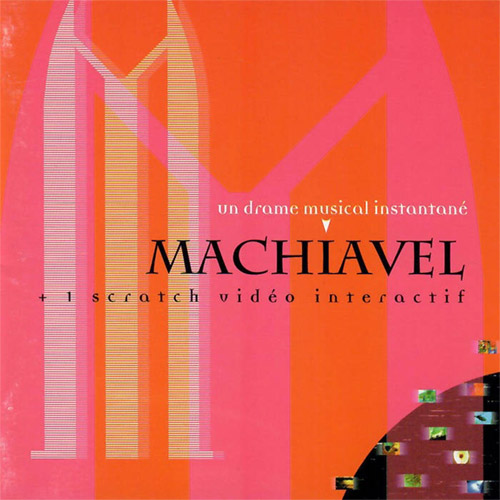

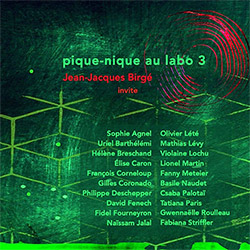
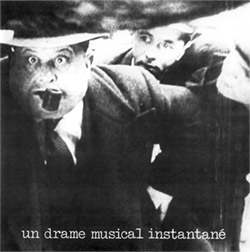








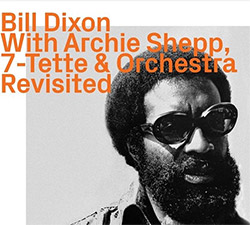
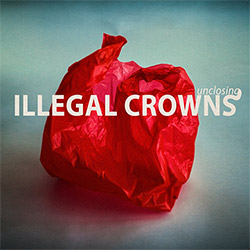

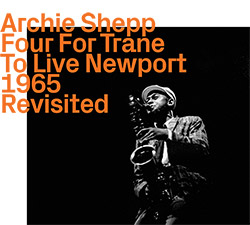
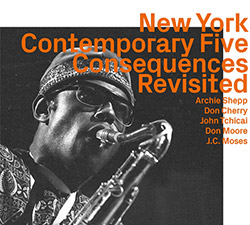

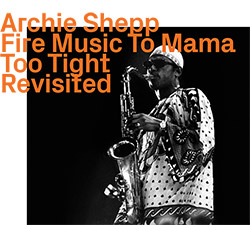











![Ackerley / Prymek / Turner: All Hope With Sleeping Minds [CASSETTE]](https://www.teuthida.com/productImages/misc4/35950.jpg)
![Myers, David Lee : Tin Drop Tear [BOOK w/ DOWNLOAD]](https://www.teuthida.com/productImages/misc4/36030.jpg)



![Schindler, Udo / Sandy Ewen / Damon Smith: Munich Sound Studies Vols. 4, 5 & 6 [3 CDs]](https://www.teuthida.com/productImages/misc4/35966.jpg)






![Turbulence Orchestra & Sub-Units: Smear Out the Difficulties (Double Live) [2 CDs]](https://www.teuthida.com/productImages/misc4/36048.jpg)
![Perelman, Ivo / Tyshawn Sorey: Paralell Aesthetics [2 CDs]](https://www.teuthida.com/productImages/misc4/35871.jpg)


![Sjostrom, Harri: SoundScapes #4 Festival Berlin 2023 [3 CDs]](https://www.teuthida.com/productImages/misc4/35874.jpg)

![Musicworks Magazine: #150 Winter 2024/25 [MAGAZINE + CD]](https://www.teuthida.com/productImages/misc4/36035.jpg)





![Glenn, Jordan: Flustered [CASSETTE]](https://www.teuthida.com/productImages/misc4/35948.jpg)


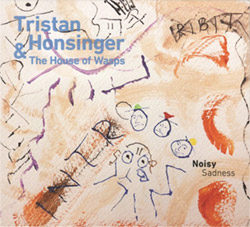
![Lindorff-Ellery, Evan: Church Recordings from Monhegan [CASSETTE]](https://www.teuthida.com/productImages/misc4/35949.jpg)
![Schindler, Udo / Werner Dafeldecker / Gunnar Geisse: Travelling Sound Images - Cognitive Transfers [Trio]](https://www.teuthida.com/productImages/misc4/35767.jpg)

![Egberth, Dennis: The Dennis Egberth Dynasty [VINYL]](https://www.teuthida.com/productImages/misc4/35549.jpg)

![Schindler, Udo / Rieko Okuda / Eric Zwang Eriksson: Disturbed Terrains [2 CDs]](https://www.teuthida.com/productImages/misc4/35330.jpg)
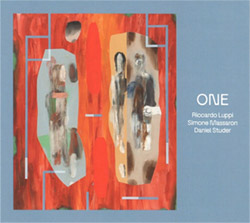
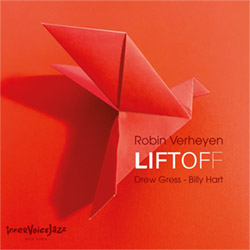
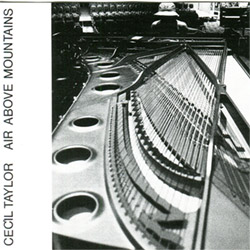


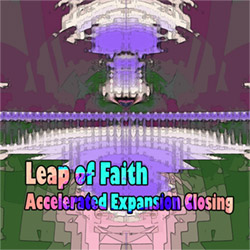
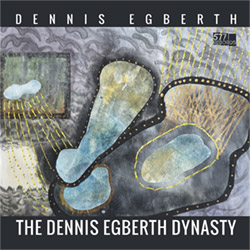
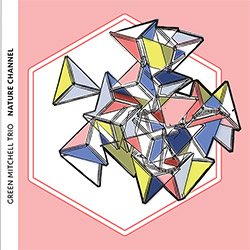

![Wolf Eyes / Anthony Braxton: Live At Pioneer Works, 26 October 2023 [VINYL]](https://www.teuthida.com/productImages/misc4/35839.jpg)




![Olencki, Weston : Pearls Ground Down To Powder [VINYL]](https://www.teuthida.com/productImages/misc4/35956.jpg)
![Myers, David Lee: Oculus [2CDs]](https://www.teuthida.com/productImages/misc4/35857.jpg)


![dustsceawung: dustsceawung [CASSETTE w/ Download]](https://www.teuthida.com/productImages/misc4/35753.jpg)



![Halls of the Machine: Atmospheres For Lovers And Sleepers [CASSETTE w/ DOWNLOAD]](https://www.teuthida.com/productImages/misc4/35806.jpg)


![AHC (Alexander Cooper): Lase [2 CDs]](https://www.teuthida.com/productImages/misc4/35754.jpg)

![Fagaschinski, Kai / Yan Jun : Graveyard Processions [VINYL w/ DOWNLOAD]](https://www.teuthida.com/productImages/misc4/35474.jpg)
![Brant, Cody / Carl Kruger: Smoke Detail [CASSETTE w/ DOWNLOAD]](https://www.teuthida.com/productImages/misc4/35551.jpg)







![Zorn, John / JACK Quartet: The Complete String Quartets [2 CDs]](https://www.teuthida.com/productImages/misc4/35609.jpg)

![Lonsdale, Eden: Dawnings [2 CDs]](https://www.teuthida.com/productImages/misc4/35480.jpg)







![Sanna, Claudio: Compositori Sardi Contemporanei II [2 CDs]](https://www.teuthida.com/productImages/misc4/35317.jpg)







![Zurria, Manuel: Fame di Vento [3 CDs]](https://www.teuthida.com/productImages/misc4/35167.jpg)

![Granberg, Magnus / Nattens Inbrott / Skogen: Holde Traume, Kehret Wieder! [2 CDs]](https://www.teuthida.com/productImages/misc4/35038.jpg)

![Electric Bird Noise / Derek Roddy: 8-10-22 [CD EP]](https://www.teuthida.com/productImages/misc4/35970.jpg)







![Elephant9 : Mythical River [VINYL]](https://www.teuthida.com/productImages/misc4/34624.jpg)



![Elephant9 with Terje Rypdal: Catching Fire [VINYL 2 LPs]](https://www.teuthida.com/productImages/misc4/35355.jpg)
![Deerlady (Obomsawin, Mali / Magdalena Abrego): Greatest Hits [VINYL]](https://www.teuthida.com/productImages/misc4/34876.jpg)







![Surplus 1980: Illusion of Consistency [CD]](https://www.teuthida.com/productImages/misc4/35069.jpg)
![Staiano, Moe: Away Towards the Light [VINYL + DOWNLOAD]](https://www.teuthida.com/productImages/misc4/35037.jpg)



![Caveira (Gomes / Sousa / Abras / Ferrandini): Ficar Vivo [VINYL]](https://www.teuthida.com/productImages/misc4/34643.jpg)
![Coley, Byron: Dating Tips for Touring Bands [VINYL]](https://www.teuthida.com/productImages/misc4/17906.jpg)

![Lost Kisses: My Life is Sad & Funny [DVD]](https://www.teuthida.com/productImages/misc4/lostKissesDVD.jpg)